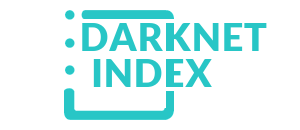The darknet, also known as the dark web, is a concealed section of the internet that's inaccessible via standard search engines. You can only access it using special software, settings, or authorization. This area comprises websites and content that are purposely kept hidden from public view.
Accessing darknet requires using Tor Browser, a special web browser that routes your internet traffic through a global network of relays managed by volunteers. This way, it becomes very difficult to trace which websites you're visiting, and these sites won't know where you are located.
When visiting the dark web, use a secure browser like Tor, do not reveal any of your personal information, and don't open suspicious files or links to stay safe.
The Darknet is often utilized for secure communication, discreet information or file sharing, anonymous research without identity exposure, and occasionally for engaging in illicit activities. It is also recognized for hosting underground black markets(darknet markets), whistleblowing platforms, and discussion boards that champion freedom of speech.
While accessing Darknet Markets themselves is typically not against the law in most places, engaging with illicit goods within them is generally considered a crime. On the other hand, some people might visit Darknet Markets for lawful purposes such as research, journalistic work, or simply to explore online communities. It's essential to know the local laws regarding online activities, and be cautious when using these platforms to avoid any potential issues.
Health data from Florida reportedly leaked on darknet after state refuses to pay ransom
Confidential information from Florida's Department of Health was reportedly leaked on the darknet by a global ransomware group after the state failed to meet a payment deadline on July 5. HackManac, a cyberattack tracking company, disclosed on X that the group RansomHub had threatened to release 100 gigabytes of data unless Florida paid an undisclosed sum by Friday. Florida, following CISA guidelines that advise against paying ransomware demands, did not comply.
After the deadline passed, RansomHub posted a link to the stolen data on its dark web account, according to Statescoop. A profile by SOC Radar provides some insights into the ransomware group, stating that they do not target nonprofits, are solely motivated by money, and prohibit re-attacks on companies that have paid.
In a separate incident on April 8, RansomHub demanded payment from Change Healthcare, a major health payment processor, just two months after its alleged affiliate, the BlackCat cyber gang, received $22 million for claimed possession of four terabytes of patient data. Despite payment, the BlackCat group did not return the data and allegedly sold screenshots of it to the highest bidder on the dark web after RansomHub's demands were not met.
